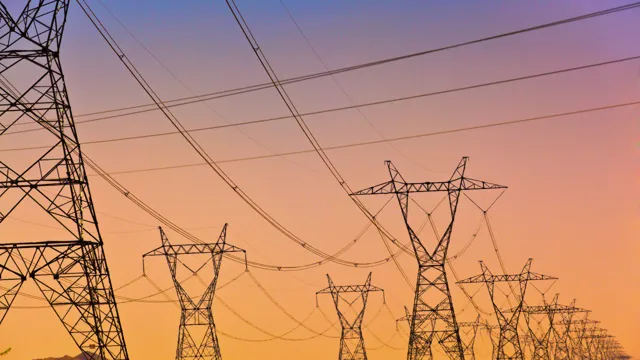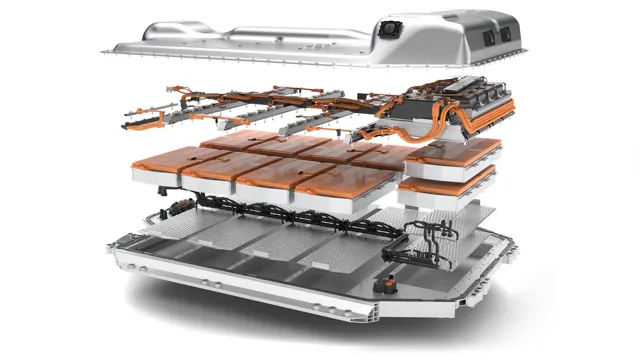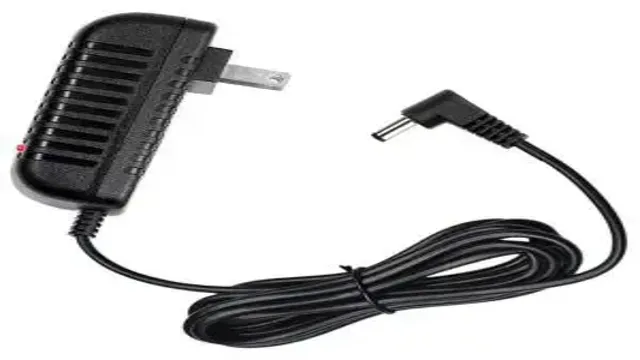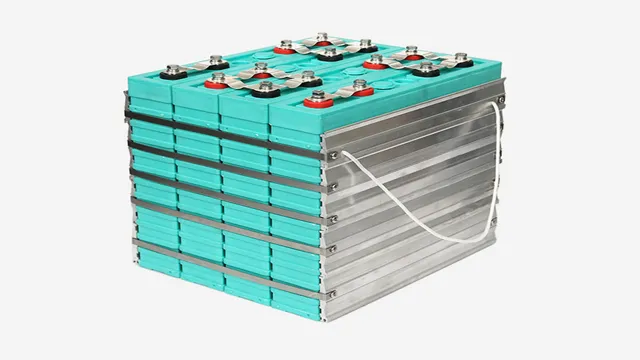Stop Your Car’s Electrical Gremlins: Troubleshooting Battery Drain Issues
Have you ever experienced the frustration of waking up to a dead car battery without any explanation? You might be wondering what caused it to suddenly drain overnight. Car electrical problems like battery drain can be a major inconvenience, especially if you rely on your vehicle daily. One of the most common causes of battery drain is leaving something on in your car, such as headlights or interior lights.
However, if you’re sure that’s not the case, there may be a deeper underlying issue. Faulty electrical components like alternators, starters, or electrical systems can also cause battery drain. When your car battery keeps dying, it’s crucial to take it to a professional mechanic to diagnose and fix the problem.
Ignoring it can lead to more significant issues, and you might end up stranded on the side of the road. In this blog, we’ll discuss what causes a car battery drain, how to prevent it, and what steps to take when it happens. With our tips and guidance, you’ll be able to keep your car’s electrical system in good condition and avoid unexpected breakdowns.
Symptoms of Battery Drain
If you’re experiencing a car electrical problem battery drain, there are several symptoms to watch out for that can indicate that there’s an issue. One of the most obvious signs is that your car won’t start right away, or it may require a jump-start frequently. Additionally, you may notice that your headlights and interior lights are dimmer than usual or that your power windows operate more slowly.
Your car’s dashboard may also display warning lights, such as the battery light, which can indicate that there’s an issue with your electrical system. If you experience any of these symptoms, it’s essential to have your car inspected by a trained professional to diagnose and fix the problem before it worsens. Neglecting a battery drain issue can lead to a dead battery and more severe problems with your car’s electrical system that could be more expensive to repair.
Weak Starting Power
One of the most common symptoms of a weak starting power in your car is difficulty starting your engine. When you turn the key or press the ignition button, you may notice that the engine cranks more slowly than usual or doesn’t start at all. This is a sign that your car’s battery is not providing enough power to the starter motor, which is responsible for turning the engine over.
Other symptoms of battery drain can include dimming headlights, weak interior lights, and a sluggish horn. If you are experiencing any of these issues, it is important to have your battery and electrical system checked by a professional mechanic. Don’t wait until you are stranded with a dead battery on the side of the road.
Regular maintenance and monitoring of your car’s battery will help ensure you have a reliable vehicle that is always ready to start when you need it.

Dashboard Light Flashes
When you’re driving along and suddenly your dashboard light starts flashing, it’s a definite sign that something isn’t quite right with your car. One of the most common reasons for dashboard lights flashing is battery drain. This means that your car’s battery isn’t getting charged correctly, leading to a lack of power when you need it most.
Symptoms of battery drain include difficulty starting your car, dimming lights, and problems with your radio and other electrical systems. If you’re experiencing any of these issues, it’s important to get your car checked out as soon as possible, as a dead battery can leave you stranded on the side of the road. In some cases, the solution might be as simple as getting a new battery, while in other cases, a more complex problem might be to blame.
Regardless of the cause, it’s always best to get a professional opinion and make sure your car is running smoothly.
Causes of Battery Drain
If you’re experiencing car electrical problems, one common issue is battery drain. There are several potential causes of this problem. One possibility is that there’s a parasitic drain on the battery.
This means that there’s an electrical component in your car that continues to draw power from the battery even when the car is turned off. This can be caused by things like a faulty alternator, a malfunctioning ignition switch, or a short circuit in the wiring. Another possibility is that your battery is simply old and needs to be replaced.
Over time, all car batteries will lose their ability to hold a charge, and eventually, they’ll need to be swapped out. Other potential causes of battery drain include leaving a light or accessory on in the vehicle, a damaged battery cable, or a faulty starter motor. If you’re experiencing battery drain, it’s important to get your car inspected by a reputable mechanic as soon as possible to diagnose the cause of the problem.
Parasitic Drain
Parasitic drain is a major cause of battery drain in vehicles. This occurs when electrical power is being drawn from the battery even when the vehicle is turned off. Essentially, something is still running or using power in the background when it shouldn’t be.
This can be caused by a variety of factors such as aftermarket electronic installations, faulty wiring, or even something as simple as a light being left on overnight. Parasitic drain can be difficult to diagnose because it’s often happening in the background, but a mechanic can use special tools and techniques to locate the source of the problem. It’s important to address parasitic drain as soon as possible because it can cause premature wear and tear on the battery, which can lead to the need for replacement sooner than expected.
So, if you’re experiencing battery drain in your vehicle, don’t ignore it. Get it checked out to prevent further problems down the road.
Faulty Alternator
When your car battery dies unexpectedly, the culprit is often a faulty alternator. This critical component is responsible for producing electricity to power your car’s electrical system. When the alternator fails, the battery is forced to supply electricity, causing your battery to drain quickly.
But what can cause your alternator to fail? One common culprit is a worn-out belt that doesn’t properly turn the alternator. Another common cause is a malfunctioning voltage regulator, which regulates the alternator’s voltage output. Other potential causes include loose or corroded electrical connections and a damaged or worn-out alternator itself.
If you’re experiencing battery drain, it’s essential to have your alternator inspected and repaired or replaced to prevent further damage to your vehicle’s electrical system. By addressing the root cause of your battery drain, you can prevent costly repairs down the line and ensure that your car has reliable power when you need it most.
Solutions to Battery Drain
If you’re dealing with a car electrical problem, it could be causing battery drain. You might notice that your battery is dying faster than usual, or that your car won’t start unless you jump it. The good news is that there are several solutions to this issue.
First, you can check for any accessories or devices that might be draining the battery when they’re not in use. These could include things like phone chargers or GPS devices. Another solution is to inspect the battery itself and ensure that it’s not old and needing to be replaced.
Finally, you can take your car to a professional mechanic who can diagnose and fix any underlying electrical issues that might be causing the battery drain. By taking proactive measures and identifying the root cause of the problem, you can ensure that your battery stays charged and your car stays operational.
Checking for Leaks
When it comes to your car battery, it’s essential to check for leaks regularly. Battery leaks can not only cause battery drain but also lead to serious damage or even a car fire. The first step in identifying a battery leak is to inspect the battery casing for any signs of corrosion or damage.
If you notice any, it’s crucial to take immediate action and replace the battery. Another way to check for leaks is to use a multimeter to test the battery’s voltage. If the voltage drops significantly after a short period, it’s a sign of a leak.
Additionally, ensure that the battery cables are secure and not damaged, as this could also cause battery drain. By regularly checking for battery leaks and addressing them promptly, you can improve your car’s overall performance and prevent costly repairs down the road.
Recharging the Battery
One of the biggest frustrations that smartphone users face is the battery drain. There’s nothing more irritating than being in the middle of an important phone call or waiting for an appointment and realizing that your phone battery is about to die. Luckily, there are several solutions to this common problem.
Firstly, try switching off your Wi-Fi, Bluetooth, and GPS when you’re not using them as they consume a significant amount of power. Another tip is to adjust the brightness of your screen to a lower setting. Additionally, closing any unused apps or tabs can also help save battery life.
By implementing these simple steps, you can extend your phone’s battery life and reduce the need to recharge. Ultimately, recharging the battery can be tedious, so it’s best to take the necessary precautions to avoid frequent recharges and prolong the life of your phone’s battery.
Preventive Measures
Car electrical problems can be a real headache, especially when it comes to battery drain. One way to prevent this issue is by regularly checking your car’s electrical system. Make sure all electrical components are functioning properly and replace any faulty parts as soon as possible.
Another helpful tip is to turn off all electronics and lights before leaving the vehicle. This ensures that the battery is not drained unnecessarily and helps to prolong its lifespan. Additionally, you can invest in a battery charger or maintenance system to keep the battery fully charged and prevent drain over time.
By taking these simple preventive measures, you can avoid the frustration and inconvenience of a dead battery caused by an electrical problem.
Conclusion
In the race of life, our cars are our trusty steeds, but just like any creature, they too suffer from fatigue and require rest. However, when your car begins to suffer from an electrical drain, it’s like it has insomnia – continuously running even when it should be resting. This can lead to frustration and anxiety as you watch your beloved vehicle slowly lose its vitality.
So, just like you would take care of yourself when you’re tired, show some love to your car and take it to a mechanic to fix that battery drain. Give your car the rest it deserves, and it will thank you by being your ever-reliable companion in the journey of life.”
FAQs
What are common signs of a car electrical problem?
Common signs of a car electrical problem include dimming headlights, flickering dashboard lights, issues with power windows and locks, and strange noises coming from the engine.
Can a bad battery cause electrical problems in a car?
Yes, a bad battery can cause electrical problems in a car, such as a drain on the battery that can lead to other malfunctions.
How can I tell if my car battery is draining unexpectedly?
You can tell if your car battery is draining unexpectedly if you notice your interior lights dimming, your car not starting or turning over, or if your dashboard is showing a low battery warning.
What are some common reasons for a battery drain in a car?
Some common reasons for a battery drain in a car include leaving the lights on, a faulty alternator or starter, a parasitic draw from a faulty component or wiring, or an old or damaged battery.





